Australia’s COVID-19 lockdown: Why restrictions won't ease like Italy's
Health chiefs say Australia will not be following other countries in relaxing restrictions just yet, even though our infection rate and death toll is significantly less. Here’s why.
National
Don't miss out on the headlines from National. Followed categories will be added to My News.
Australia is not likely to follow in the footsteps of Italy in easing COVID-19 restrictions, or join the US, Germany, France and Austria in pursuing a gradual return to normality, as coronavirus infection rates fall.
However, the nation is on the right track to easing restrictions, with the National Cabinet agreeing on April 16 to maintain baseline measures for the next four weeks.
The only exception made by the National Cabinet was to ease restrictions on category two and category three elective surgery procedures across public and private hospitals on Tuesday, which will be in effect from April 27.
Deputy Chief Medical Officer Professor Paul Kelly told News Corp the decision was the result of Australia's success in flattening the curve, the low rates of COVID related hospitalisations and new data on stocks of PPE.
He also said it was "not yet time to decrease the (other) measures currently in place" – meaning it is unlikely further restrictions being eased will follow before May 14.
His comments follow Prime Minister Giuseppe Conte announcing Italy would likely start relaxing its coronavirus lockdown from May 4, even though the country had been one of the hardest hit by COVID-19, with more than 24,000 deaths and nearly 184,000 infections.
"Every country is different, and even within countries there can be vastly different situations," Professor Kelly said.
"I respect the right of governments and health authorities to make decisions based on their own circumstances and data.
"We have seen other countries experience second waves of infections, and this evidence will be considered as each country decides what measures can be eased and what must be maintained."
Professor Kelly said key considerations in easing the restrictions in Australia would include a sustained flattening of the curve, reducing transmission from cases and the expanded capability of the healthcare system to respond to an outbreak in the instance there were new cases.
He added, with 22 new cases reported in the past 24 hours and 231 in the past seven days, "the numbers indicate a steady decline over the last fortnight and are a positive indication public health measures introduced to date have been successful in helping to suppress transmission of COVID-19 in Australia".
"Two factors will be critical over the coming weeks and months," Professor Kelly told News Corp.
"Firstly, we will need to track down all cases—not just those who present to hospitals or doctors. A proportion of people who carry the virus have no symptoms.
"Secondly, we need to be able to quickly find people who have been in close contact with an infected person, so they can be isolated before they pass on the virus.
"While it is not yet time to decrease the measures we currently have in place, this has meant we can plan for the next phase."
The Australian Government is sending an official text message to mobile phones across Australia.
— Australian Government (@ausgov) March 24, 2020
Please read and act #COVID19 #coronavirusaustralia pic.twitter.com/dVmks19wL4
Prime Minister Scott Morrison on Tuesday said the requirements to easing restrictions would be having an effective rate of transmission less than the score of one as well as having wider testing, increased tracing and expanding capacity to control outbreaks.
"They are the clear markers. They are the clear prerequisites. There is no uncertainty about that," Mr Morrison said.
"States and territories in the meantime, where they have taken actions on restrictions that go beyond the national baselines, as we have already seen Western Australia do, then they will take decisions over the next few weeks that may see them ease back on some of those restrictions.
"There is a strong resolution amongst the National Cabinet to stick to the plan because the plan is saving lives and it is saving livelihoods."
Here is snapshot of the restrictions in place around the world, and the countries easing them.
NEW ZEALAND
New Zealand will move from a Level 4 to a Level 3 lockdown late next Monday.
What this means is some businesses and schools will be able to open, and rules on local travel relaxed.
The change comes after Prime Minister Jacinda Ardern placed New Zealand into a state of national emergency on March 25, just hours before enforcing Level 4 restrictions.
Non-essential workers were required to stay home and only venture outside for essential trips to the supermarket, pharmacy and bank.
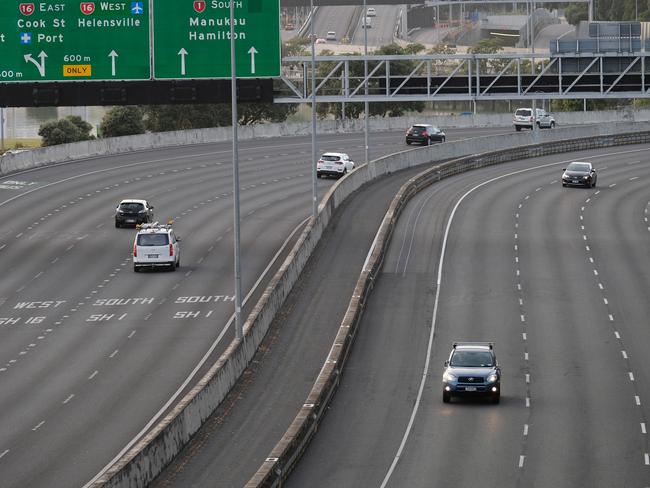
They were even asked to only have physical contact with the people they live with.
Level three allows schools to reopen with limited capacity and businesses to open as long as they do not physically interact with customers.
Gatherings of up to 10 people are allowed as well but only for weddings, funerals and tangihanaga.
Residents are still required to stay within their house bubble but Level 3 gives them the opportunity to reconnect with close family / whānau, or bring in caregivers, or support isolated people.

They are being encouraged to self-isolate if they are feeling unwell.
New Zealanders in the wrong place when Level 4 restrictions came into effect are also now allowed to move across the island to get to the place they need to be.
However, they are only allowed to move once.
Level 3 is expected to last for two weeks before a new decision is made on May 11.
INDIA
India is allowing some public sectors to operate despite a nationwide lockdown to contain the coronavirus.
Health services, agricultural activities, financial services and public utilities are now exempted from restrictions as long as they follow social distancing and limited physical contact requirements.
The country is under lockdown until May 3.
Authorities are allowing the of essential goods to local grocery stores and e-commerce retailers.
Construction on roads is allowed to resume as well as and irrigation projects and industrial projects in rural areas where no additional workers are required.
EUROPE
Denmark, Austria, Spain and Germany have begun allowing some people back to work, including hairdressers, dentists and construction workers.
Some stores were cleared to reopen too, or will soon get the OK.
However, an indication it will be a long time before life returns to normal, Spain has cancelled its Running of the Bulls in Pamplona, the more than 400-year-old event made world-famous by Ernest Hemingway’s 1926 novel "The Sun Also Rises."
It was also called off during the Spanish Civil War in the 1930s.
Germany has called off the centuries-old Oktoberfest beer festival in Munich, which draws about six million visitors each year.
It was previously cancelled during the two world wars; during a period of hyperinflation in Germany in 1923; and twice because of cholera outbreaks in the 1800s.
It has also allowed smaller shops to reopen in some regions.
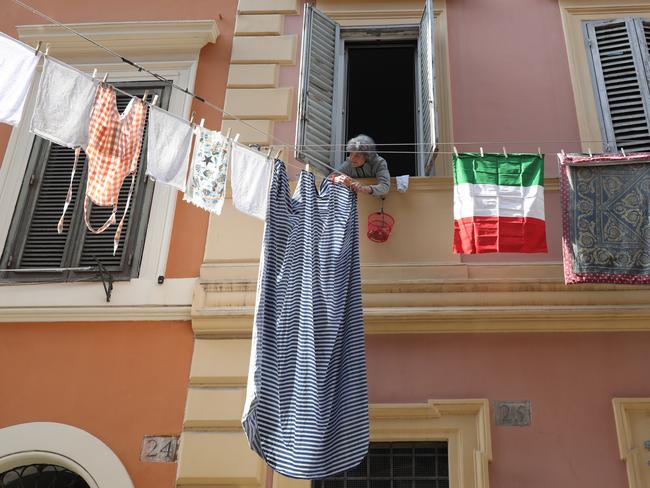
Larger stores and those in major German cities will open later as part of an attempted phased return to normal which will see some students go back to school from May 4. In Italy, Premier Giuseppe Conte confirmed businesses can start reopening on May 4 but dashed any hopes of a full end to the country’s strict lockdown any time soon, saying: "A decision of that kind would be irresponsible."
Spain will begin allowing children aged 14 years and younger out of their homes starting next week, though they must be accompanied by an adult they live with and their movements will be limited.
Those aged between the ages of 15 and 17 years already were allowed to go on family errands to the supermarket, pharmacy or bank. There will be no time limit with the new rules, and the children will not be required to wear masks.
In Denmark, Copenhagen's famed Tivoli Gardens, the amusement park which inspired Walt Disney to create his theme parks, says it is reopening for its summer season on May 11 after its April 16 opening was postponed.
BANGLADESH
In Bangladesh, a nationwide general holiday was extended until April 25 as the country tries to slow the spread of the coronavirus.
Flights from Bhutan, Maldives and Sri Lanka were suspended until April 7.
Flights from Bahrain, India, Kuwait, Malaysia, Oman, Qatar, Saudi Arabia, Singapore, Thailand, Turkey and the United Arab Emirates were also suspended until April 14.
The visa-on-arrival facility has been suspended for all nationalities.
UK
The UK government on April 16 extended the country's lockdown for at least three more weeks. Non-essential shops and services are closed, and gatherings of more than two people are banned. Residents are required to stay at home.
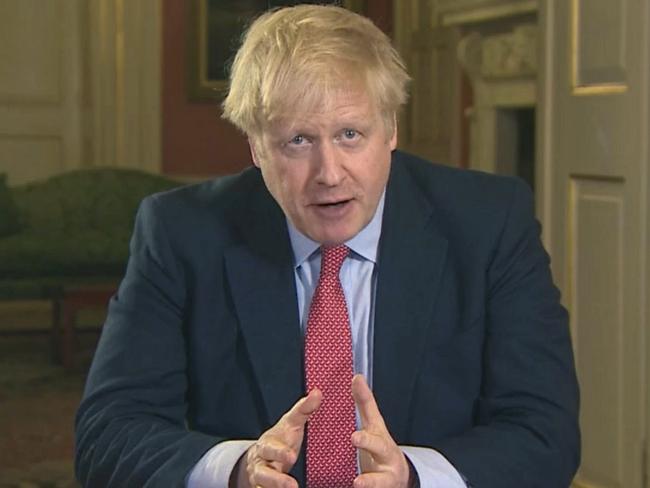
Going out to shop for basic necessities is still allowed, as is exercise, medical needs and travel to and from work.
Shops selling items such as clothes or electronics as well as libraries, playgrounds and places of worship are shut, with the ban extending to weddings and baptisms but not funerals.
Residents are encouraged to stay two metres apart if they do venture outside and wash their hands regularly.
Travelling for work purposes is allowed but only when residents cannot work from home.
US
In the US, one state after the other – mostly ones led by Republican governors – are taking steps to get back to business.
States including Tennessee, West Virginia and Colorado announced plans this week to begin reopening in stages.
As such, sunbathers quickly flocked to the sand after some South Carolina beaches reopened with the governor’s backing.
Some sheriffs in Washington state, Michigan and Wisconsin said they would also not enforce the stay-at-home order.
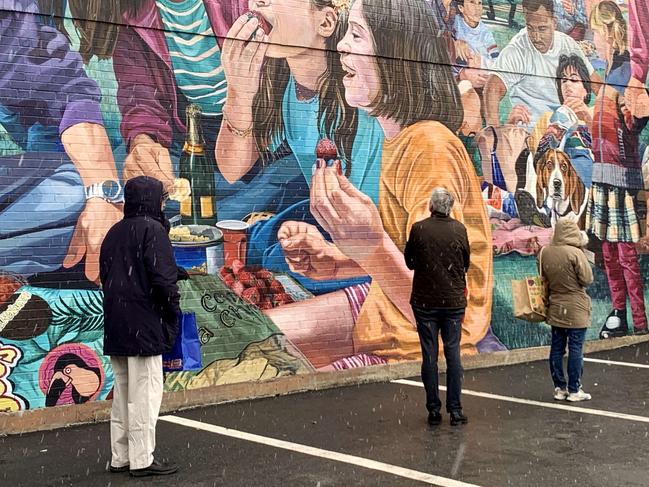
It comes as angry protesters demanding the lifting of restrictions marched in Alabama, North Carolina and Missouri with signs like "enough is enough".
However, numerous governors and local leaders said before they can relax social distancing restrictions, they need help from Washington in expanding testing to help keep the virus in check.
Democratic governors are largely keeping strict stay-at-home orders and nonessential business closures in place, resisting small pockets of Trump-aligned protesters and public pressure from the president.
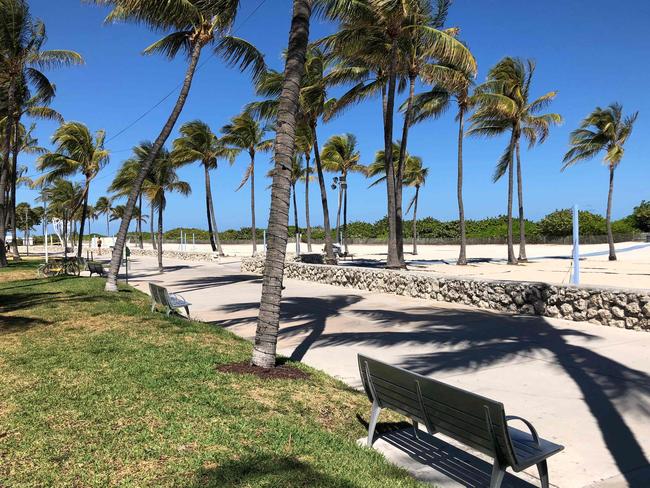
Public health officials concede no one-size-fits all approach exists, and the decisions being made by states are dependent on factors such as the density of major population areas, the capacity of medical resources and the availability of testing.
Polling shows the majority of Americans support stay-at-home restrictions to ease the pandemic – 78 per cent in an Associated Press-NORC Center for Public Affairs Research poll this month. But politicians in both parties recognize that the public’s patience may wane in the coming.
The Scripps National Spelling Bee in the US has also been canceled. The competition has been held since 1925 and was last scrubbed in 1945, during World War II.
CHINA
China’s capital Beijing reopened 73 tourist sites. The tourist destinations include the Great Wall sites of Mutianyu, Simatai and Badaling. Gubei Water Town, alongside the Simatai Great Wall in Miyun District, is expected to reopen on April 23.
China has reached an agreement with South Korea to set up a "fast track" for business people to travel between the countries as Beijing looks to ease an entry ban on foreigners imposed to curb the spread of the coronavirus.
With the deadly disease spreading globally, China last month blocked almost all foreigners from entering as authorities fretted over cases being imported from abroad. Hong Kong has reduced growth of confirmed COVID-19 cases to single digits in recent days, but city authorities say they are not taking any risks.
Chief executive Carrie Lam said social distancing measures and some business restrictions would continue for another two weeks until at least May 7.
SAUDI ARABIA, IRAQ, SYRIA, EGYPT, LEBANON, MALAYSIA
Many countries have closed mosques and banned taraweeh to prevent crowds.
Prominent clerics, including in Saudi Arabia, have urged people to pray at home.
Governments are trying to balance restrictions with traditions.
Lebanon, Iraq, Syria and Egypt loosened their curfews, moving them back to start anywhere from a half hour to 90 minutes after sunset.
That gives time to get to Iftar, but not much: people can not go too far to visit others for the meal unless they are prepared to stay the night.
Other countries have banned long internal travel.
Syria gave people a window of two days this week to move between provinces, then restored its ban.
In Malaysia, the Ramadan bazaar has been shut down.
SINGAPORE
Singapore has extended restrictions to fight the coronavirus until early June, the city-state’s leader said, as cases surge past 9000 due to a growing number of infections among migrant workers.
The city-state managed to keep its outbreak in check in the early stages due to widespread testing and contact-tracing, but is facing a fast-moving second wave of infections.
CHILE
Chile has become the latest country to prevent one – the Dutch-flagged Zaandam with 1,800 people on board – from docking. Chile is concerned that 42 of those on board with flu symptoms might be carrying COVID-19 coronavirus, but previous experience with a ship off Japan has shown the disease spreads quickly among trapped passengers.
SOUTH KOREA
South Korean football clubs will be allowed to hold practice matches behind closed doors from Tuesday, the K-League said, with the season delayed by two months so far over the coronavirus epidemic. South Korea endured one of the worst early outbreaks of the disease outside China, but appears to have brought it under control thanks to its extensive "trace, test and treat" program.
TURKEY
In Turkey, President Recep Tayyip Erdogan has urged the nation to stay at home, and enforced a curfew at the weekend. The stay-at-home order only applies to those under the age of 20 or over 65. All other citizens are in theory allowed to go out. However, many small businesses are closed, restaurants are open for delivery or pick-up only, public places are off limits and banks have limited hours. CNN reported construction sites are, however, still in full swing, along with factories and other businesses unwilling to take an economic hit.
SOUTH AFRICA
In South Africa, every person is confined to his or her place of residence, unless strictly for the purpose of performing an essential service, obtaining an essential good or service, collecting a social grant, pension or seeking emergency, life-saving, or chronic medical attention.
Gatherings, except for funerals, are prohibited as well as movement between provinces, metropolitan and district areas, except for essential workers who have to travel for work.
Businesses are closed, except for those involved in manufacturing, supply or provision of an essential good or service.
Retail shops and shopping malls are closed too.
SRI LANKA
Sri Lanka has ordered all liquor stores to close indefinitely as a part of its stringent measures aimed at containing the spread of the new coronavirus.
The government’s decision came amid warnings by the doctors’ union and association, which cautioned the consumption of alcohol can exacerbate health vulnerability, risk-taking behavior, mental health issues and violence. It also warned it could disrupt social distancing guidelines.
Doctors’ warnings came as the number of confirmed cases rose to 310. Seven people have died while 102 have recovered. Liquor stores and bars were opened on Monday in some parts of the country after the government partially lifted a month-long curfew during which all liquor shops remained close.
Sri Lanka had been under a 24-hour curfew since March 20. It was lifted during daytime hours in more than two-thirds of the country on Monday and will continue in the remaining districts including the capital, Colombo, until next week.
The curfew will remain in effect from 8 pm until 5 am until further notice.
INDONESIA
A possible explosion in coronavirus cases when millions travel to hometowns and ancestral villages after Ramadan has forced Indonesia’s president to issue a ban on the annual exodus. Like Christmas or the Chinese Lunar New Year, the movement kicks off an extended holiday when many Indonesians celebrate Eid al-Fitr with their families to mark the end of Ramadan.The government has called on residents of major cities, including the capital Jakarta, to stay put, and President Joko Widodo said he would ban any mass migration.
JAPAN
The Tokyo 2020 Olympics have been pushed back to next year. All of Japan is now under a coronavirus state of emergency.
Originally published as Australia’s COVID-19 lockdown: Why restrictions won't ease like Italy's

